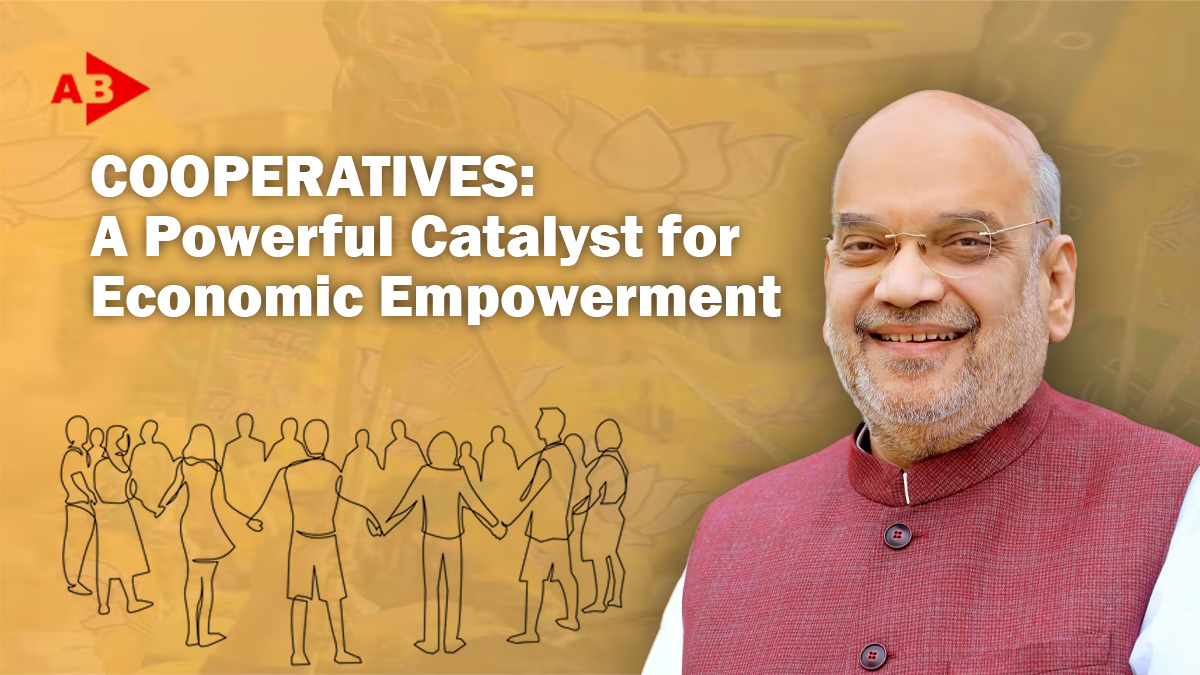
With over 621,000 cooperative societies and nearly 29 million members, India’s cooperative movement is driving economic empowerment, social cohesion, and sustainability across diverse regions.
Jotirmoy Roy, AB News, New Delhi: In a nation as diverse and expansive as India, the cooperative movement stands out as a beacon of economic empowerment, collective progress, and social cohesion. As recently highlighted by the Minister of Cooperation, Amit Shah, there are now 621,514 operational cooperative societies across the country, boasting an astounding 28,69,74,425 members. These figures are not just numbers; they represent millions of lives actively participating in their economies and communities, fostering growth, innovation, and resilience.
The Backbone of Local Economies
The cooperative sector plays a crucial role in enhancing local economies, especially in rural areas where traditional employment opportunities may be limited. By pooling resources, cooperative societies allow members to share knowledge, reduce costs, and collectively market their products. This democratization of economic power enables individuals to create self-sustaining livelihoods, elevating not just individual families but entire communities.
For instance, in states like Maharashtra, Gujarat, and Karnataka, cooperatives have transformed the agricultural landscape, empowering farmers by providing them with better access to markets, credit facilities, and technological support. These initiatives lead to increased agricultural productivity, improved food security, and enhanced food sovereignty—ultimately contributing to the national economy.
Promoting Inclusivity and Empowerment
One of the defining features of cooperative societies is their commitment to inclusivity. They serve as a platform for marginalized and underserved communities, including women and small farmers, to assert their economic rights and contribute to their households. For example, women’s cooperatives in various states have led to remarkable outcomes, increasing female representation in economic decision-making and promoting gender equity.
By encouraging cooperative entrepreneurship, women are not only gaining financial independence but are also becoming role models for the next generation. This empowerment enables communities to break free from the shackles of poverty, making cooperatives a potent tool for social justice.
Addressing Contemporary Challenges
As India stands on the brink of various technological and environmental challenges, the cooperative model is well-positioned to address these issues. Cooperatives can lead the way in sustainable practices, focusing on organic farming, renewable energy, and waste management. They can also harness technology to modernize operations, access wider markets, and improve efficiency—ensuring that they not only thrive but also contribute positively to the environment.
Additionally, the cooperative model’s resilience can help strengthen the economy against global shocks and uncertainties, such as market fluctuations and pandemics. By emphasizing localized production and consumption, cooperatives reduce dependency on volatile global supply chains, thus reinforcing economic stability.
The Way Forward
While India celebrates the immense contributions of cooperatives to its economy, it is vital to recognize that further investments and policy support are necessary to unlock their full potential. Strengthening the legal framework, enhancing access to financial resources, and providing training programs can amplify the effectiveness of cooperative societies. Governments at both national and state levels must formulate policies that encourage cooperation, foster innovation, and facilitate networking among different cooperatives.
Moreover, there is an urgent need to raise awareness about the cooperative model, particularly among the younger generation. By fostering a culture of cooperation and highlighting success stories, we can inspire future leaders to consider cooperative entrepreneurship as a viable path.
As we reflect on the remarkable role of cooperatives within the national economy, it is clear that these societies are not merely economic entities but vital components of a flourishing democracy and vibrant civil society. They embody the spirit of self-help, mutual aid, and community empowerment, essential for building a resilient and inclusive economy. Embracing and investing in cooperatives is not just beneficial for the members; it is a strategic imperative for India in its journey toward sustainable growth and prosperity.


